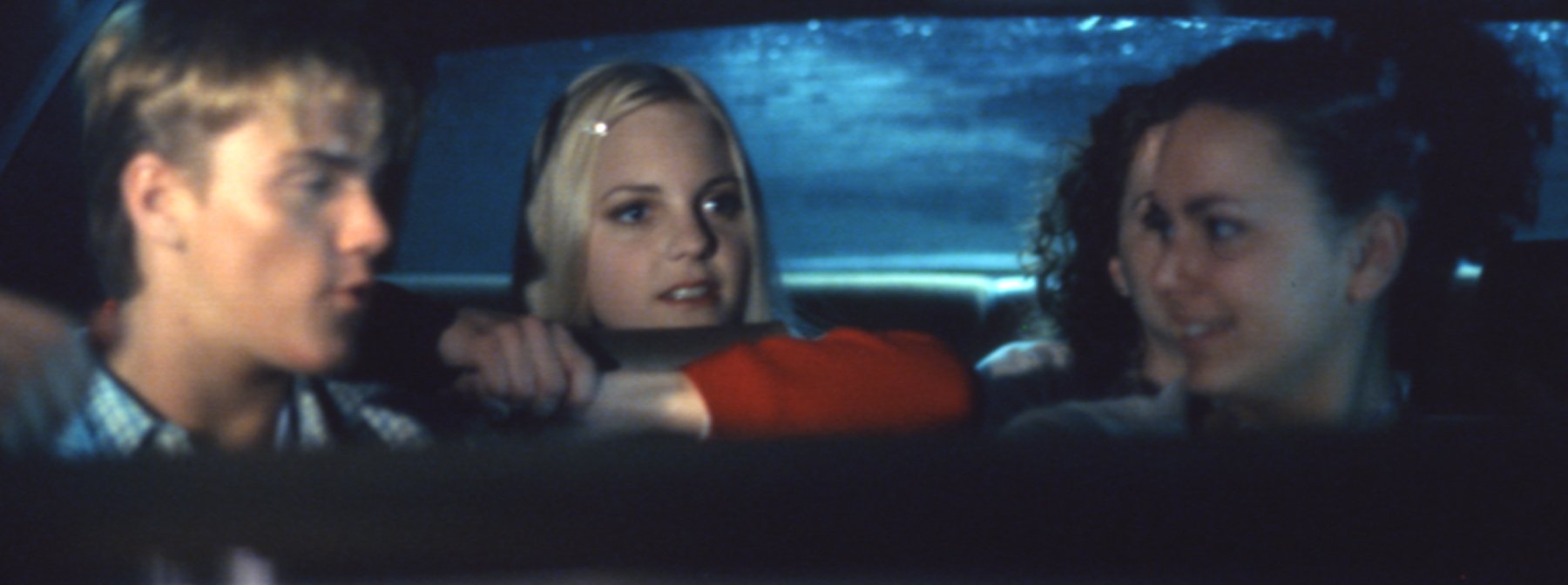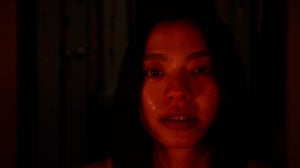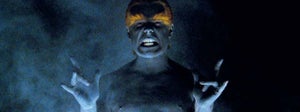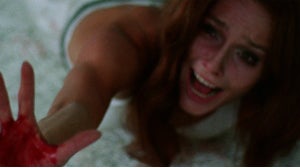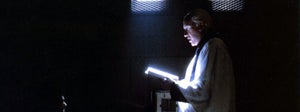
Looking back at the explosion of critical discourse that surrounded the genre-realigning release of Wes Craven’s Scream in 1996, there’s something almost charmingly retro about the excited way this particular intersection of horror and postmodernism were discussed at the time. Somewhat awkwardly abbreviated to “pomo” by its largely Gen X adherents, Scream was a masterclass: recognising that audiences knew the mechanics of the traditional slasher film backwards, it used that knowledge to bring us in on the joke, playing with the cliches in a fun and frequently self-referential way. It knew that we knew how slashers were supposed to work, and the pleasures of the film hinged on its self-aware approach to parody and irony.
It didn’t take other films long to follow suit, if only because they recognised just what a game-changer Scream was in terms of box office returns. In terms of horror more broadly, scifi horror movies like Robert Rodriguez's scifi/horror hybrid The Faculty in 1997 tapped in very quickly to the spirit of pastiche that Scream had made famous. Soon after, 2000 saw the release of the first film from the spectacle-heavy Final Destination franchise, a similarly self-referential supernatural horror series which again riffed on the audience’s awareness of the pre-established codes and conventions of the genre more broadly.
In terms of slasher alone, however, it wasn't even a year after Scream's release that the first of the I Know What You Did Last Summer films was released, Halloween 1997's blockbuster horror hit of the year, it was based on Lois Duncan's 1973 book of the same name and, like Scream, it too featured a parade of popular teen stars in a movie similarly drenched with satirical self-awareness. If there felt like there were similarities in tone between the two films, it's not surprising - both were based on screenplays written by Kevin Williamson, who would also write Scream 2 which was released in time for Christmas in 1997. And if his stamp on late 90s American horror wasn’t already distinctive enough, he also penned The Faculty.
Looking beyond the big franchise films of the post-Scream era, some of these films - like Jon Steven Ward's 1999 banger Lovers Lane, a new release from Arrow - adhere more loyally to the traditional slasher template. Others, however, are more explicit in their playful, postmodern approach to how they experimented with the nuts and bolts of the subgenre. Of these, the standouts surely remain Jamie Blanks’ Urban Legend (1998) and Valentine (2001), and Geoffrey Wright’s Cherry Falls (2000). Both made curiously by Australian directors working in Hollywood at the time, they excelled in the industrial terrain of the post-Scream slasher at a period when back home in Australia the genre was struggling to keep afloat; Kimble Rendall’s donation to this era of slasher movies Cut (1999) was a rare Australian attempt to tap into this international trend, a film that never quite caught the cult film fan imagination despite featuring an impressive cast including Molly Ringwald and Kylie Minogue.

Blanks’ Urban Legend still packs enormous punch, a film fronted by ubiquitous Gen X formative crush Alicia Witt and a pre-icky, babyfaced Jared Leto. All the ingredients of the late 90s genre film are here - there’s a prickly, oversexed goth chic, horror stalwart cameos in the shape of Robert Englund and Brad Dourif, and enough twists and turns to keep the thrill factor at a consistent high. Based on the widespread use of urban legends in slasher films especially, the film weaves together a series of pre-existing urban legends into its fictional story. This is continued in John Ottman's Urban Legend 2: Final Cut in 2000, which also more aggressively incorporates broader self-referential hat-tips to the genre as it knowingly flags everything from The Twilight Zone to Michael Powel’s Peeping Tom (1960).
Blanks would return to the slasher terrain a few years later with Valentine, which has quite rightly developed a dedicated cult following in recent years especially. Again starring a plethora of popular teen idols (here we have Denise Richards, Katherine Heigl and Buffy’s David Boreanaz), of all the slasher films of this era Valentine in many ways remains the most intriguing. Not afraid of showcasing its central cast of mostly unlikable characters, the group of female friends at the centre of the film with few exceptions are like a toxic Spice Girls gone into overdrive. Menaced by a killer wearing a distinctive plastic cupid mask, as the body count rises so to the complex relationships between the women intensify as they are forced to reckon with some of the darker aspects of their shared history. Despite its playful surface tone, Valentine even today is an unsettling watch, circling as it does a never-fully-resolved dimension that quite openly tackles the thorny subject of intimate partner abuse, both physical and emotional.
But from a contemporary perspective, it is surely the broadly underrated Cherry Falls that remains the most impressive and enduring film of all the post-Scream slashers. In one of the late great Brittany Murphy’s finest performances, she plays a high school student caught up in a wave of brutal killings by a murderer who seeks out virgins. A radical twist on the slasher cliché that it is sexually active teens who are punished, Cherry Falls is effectively a rape-revenge slasher that, when seen through the lens of a post-MeToo context, feels almost eerily ahead of its time. And on top of that, it’s funny too: while slasher of this era are notable for their sharp sense of humour, Ken Selden’s script is surely the cream of the crop with quotable line piled up on quotable line (“Holy hymens, Batman - they’re killing virgins!”). While a lot of fun to watch, these post-Scream slashers - Valentine and Cherry Falls in particular - simultaneously share a dark heart that remains all too relevant today, films just waiting and fully deserving of the same cult film fan adoration as the better known movies of the period.
https://www.youtube.com/watch?v=bBZgmirfawc&pp=ygURbG92ZXJzIGxhbmUgYXJyb3c%3D

